- #AUEUTracker
#AUEUTracker Special Dialogue: Combatting Illicit Financial Flows (IFFs)
- The Africa-Europe Foundation

Since its launch, the Africa-Europe Foundation (AEF) has committed to identifying and addressing issues of significance for the Africa-Europe collaboration through an open and frank dialogue between our two continents.
As such, the AEF is organising a series of high-level broadcast dialogues as part of its 'Commitment Tracking' program aimed at capturing progress since the 6th EU-AU Summit of February 2022 and analysing the potential blockages to implementation and opportunities for partnership action.
The July 2023 edition of the #AUEUTracker Special Dialogue focused on the AU-EU commitment to "Combatting Illicit Financial Flows" as part of the broader theme of Sustainable Growth.

Illicit Financial Flows is the movement of money across borders that is illegal in its source (e.g., corruption, smuggling), its transfer (e.g., tax evasion), or its use (e.g., terrorist financing).
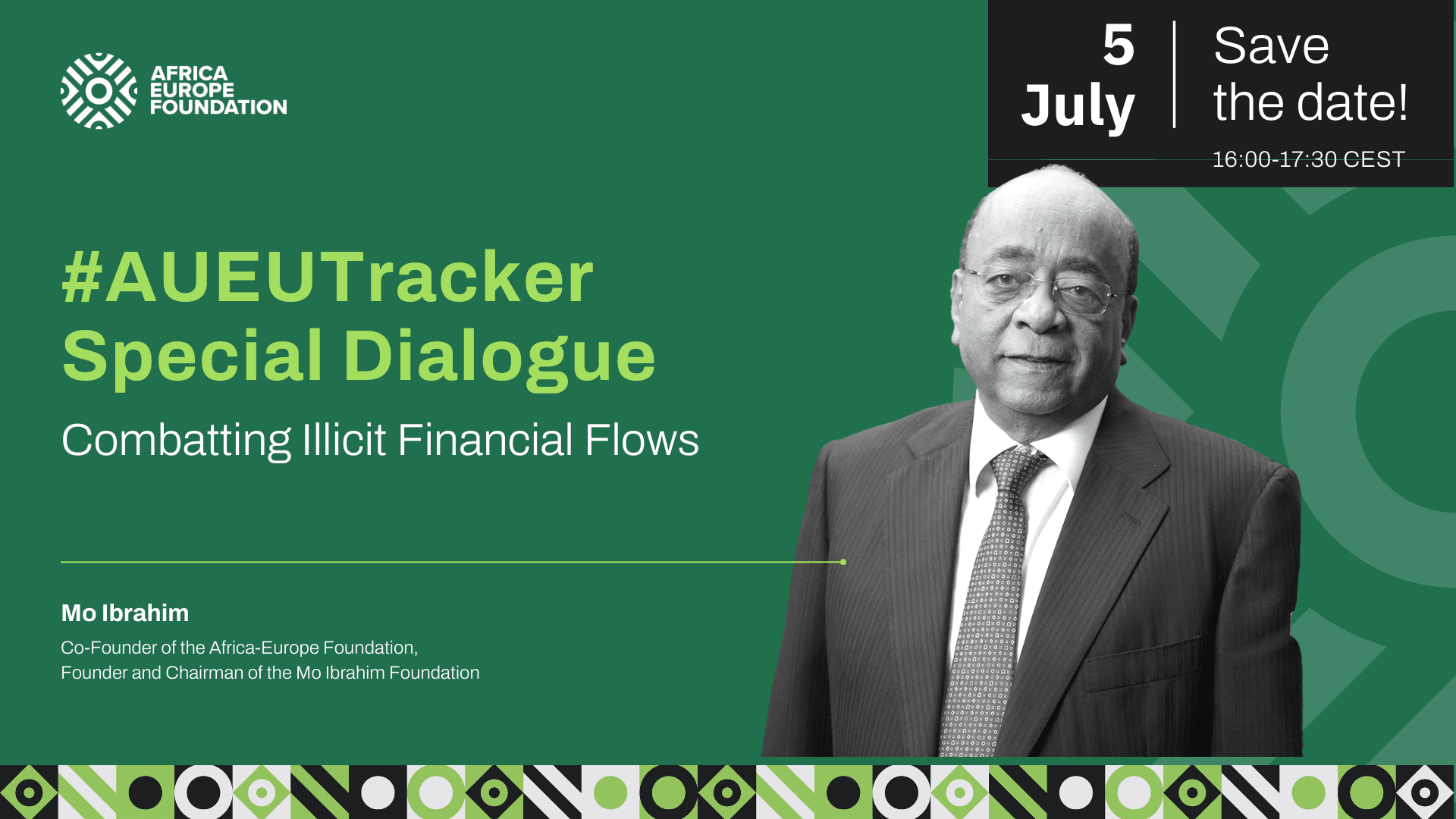
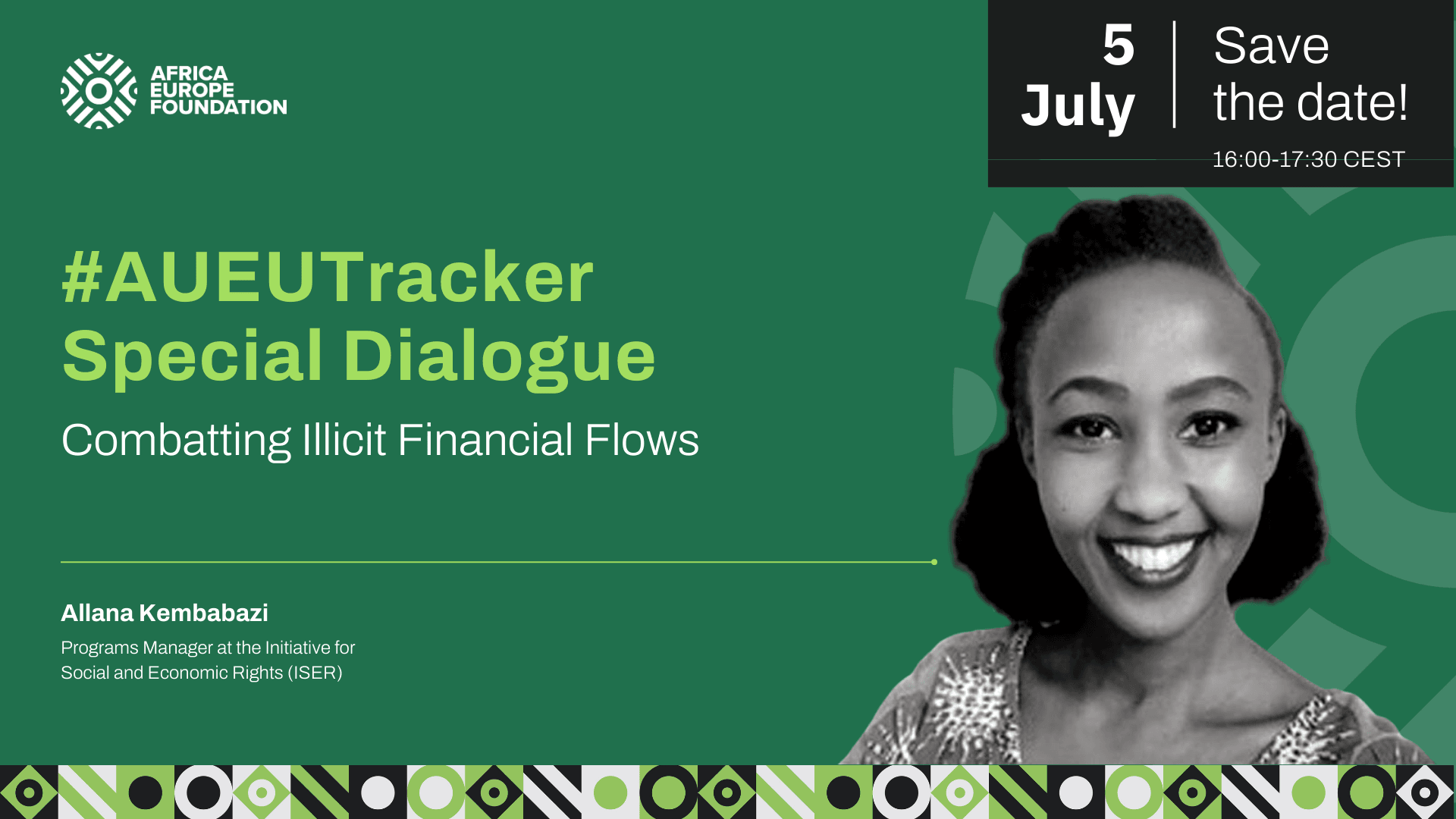
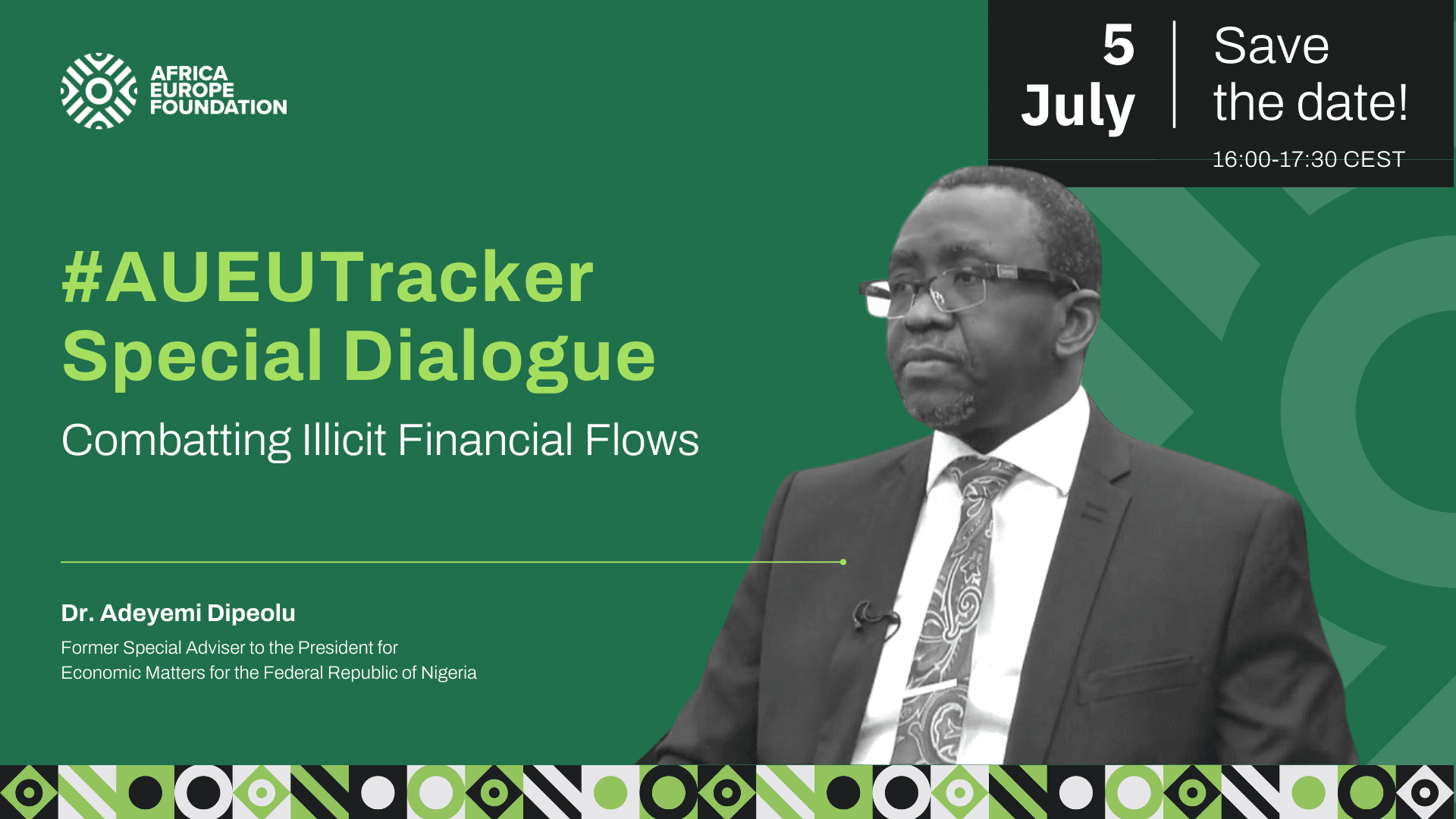
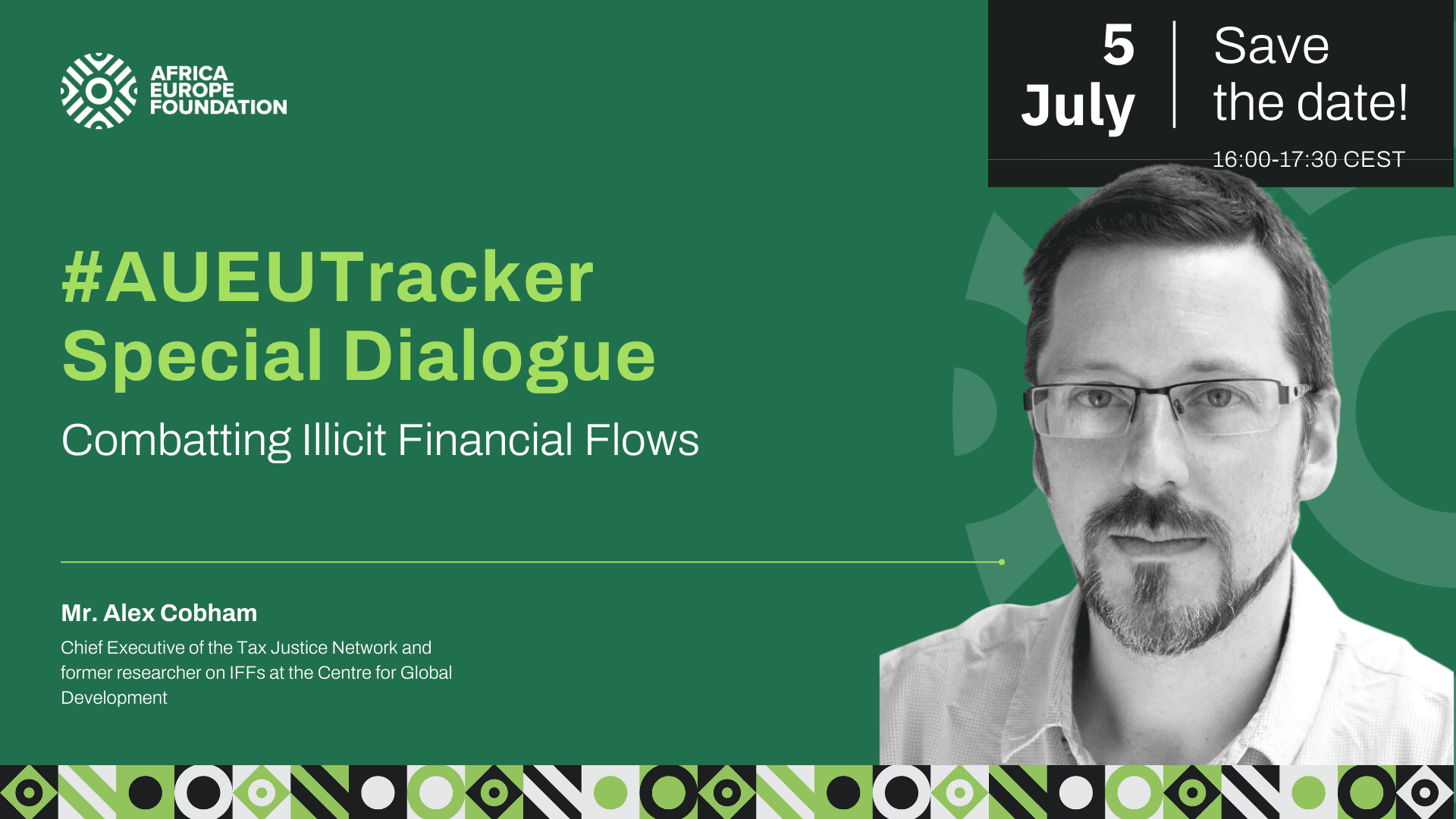
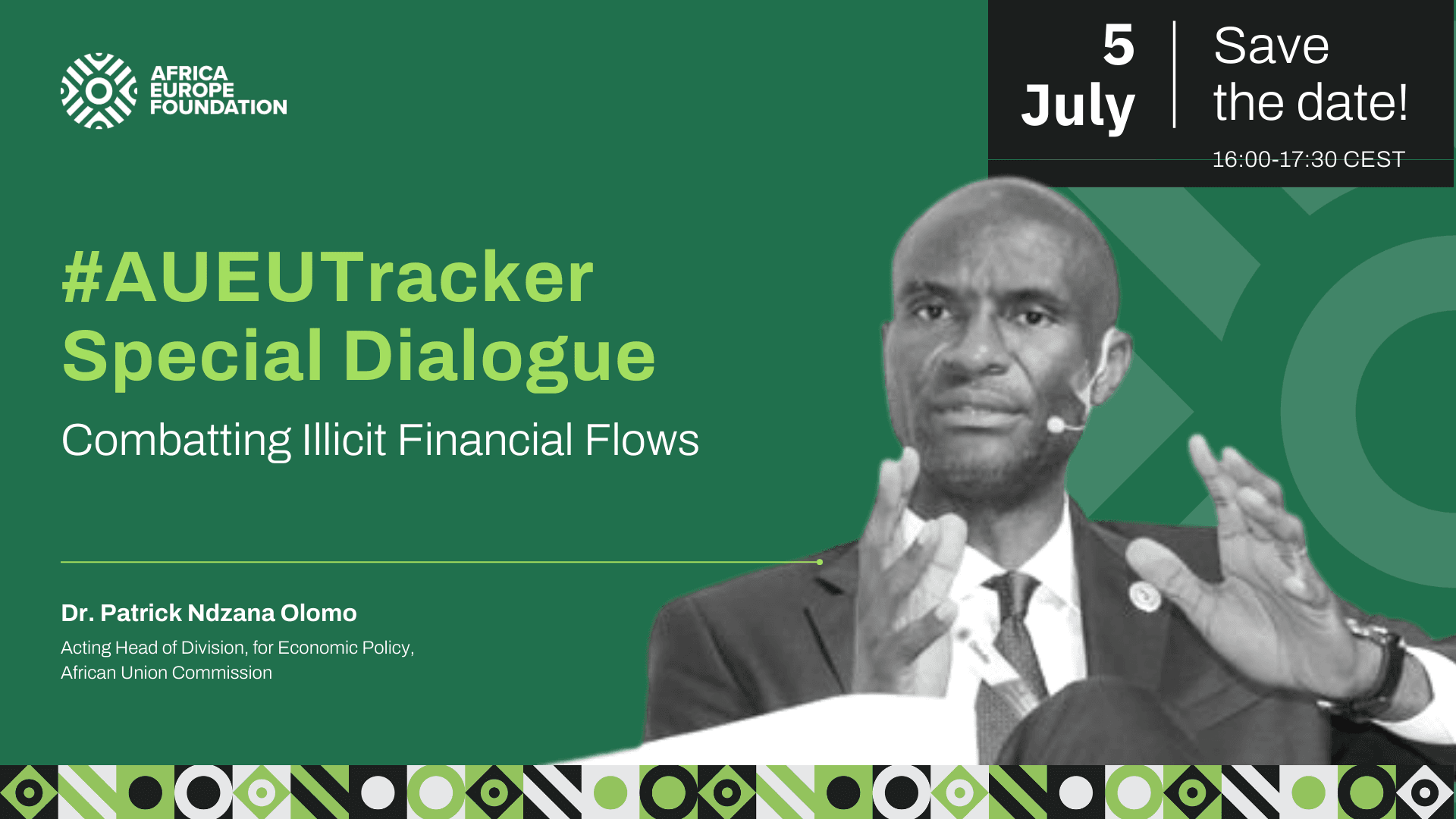
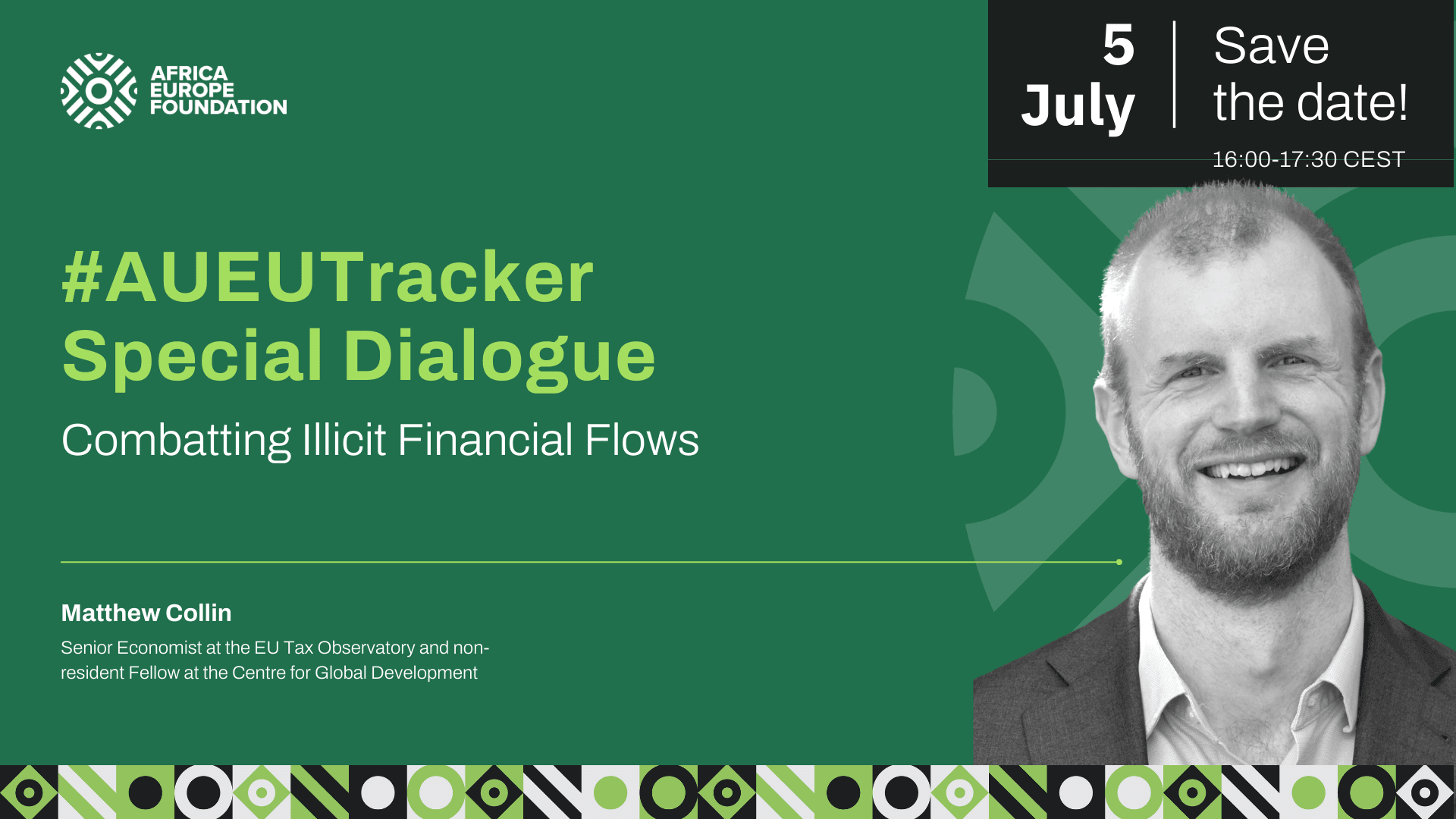
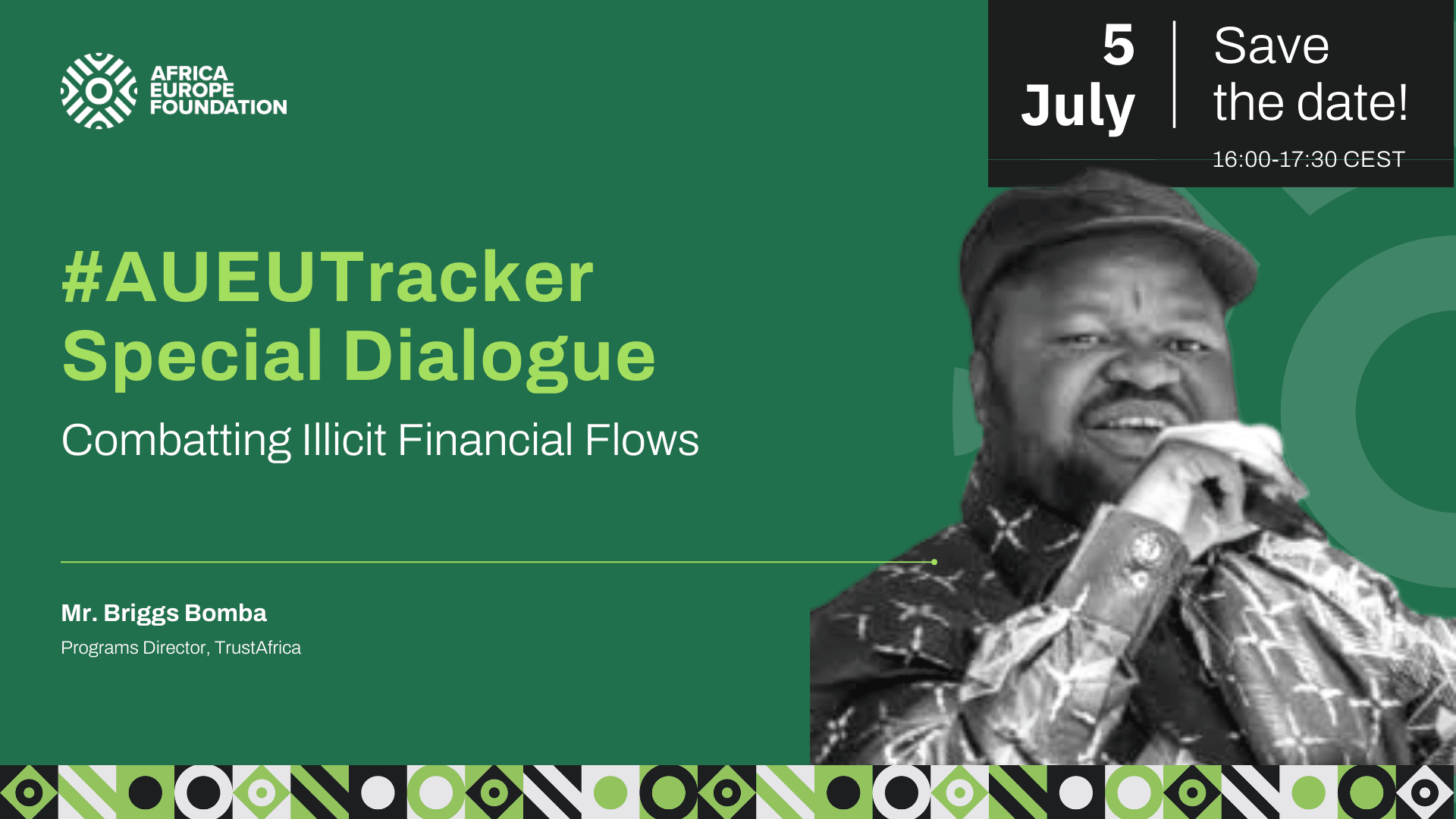
At the recently concluded Ibrahim Governance Weekend held in Nairobi, Kenya, the AEF High-Level Group of Personalities confirmed the importance of addressing the issue of Illicit Financial Flows as a shared agenda for the Africa-Europe Partnership. It is a critical constraint for unlocking domestic resources to finance African development needs during fiscal tightening and the looming sovereign debt crisis.
Prolonging the current status quo can also come at a high cost as the IFFs have the potential to severely impact economic stability and economic opportunities, for example, by depleting foreign exchange reserves, creating unfair market competition, artificially inflating property prices, or diminishing tax intake.
At the moment, there is growing evidence of the severe impact of illicit financial flows on Africa. The UNECA High-Level Panel (HLP) on IFFs pointed out that Africa has lost an estimated $1 trillion or more over the past 50 years to illicit financial flows. This figure equals all the official development assistance (ODA) received by Africa during the same period. According to the OECD (Tax Transparency in Africa 2021), more than US$ 80 billion is estimated to escape the African continent yearly through illicit financial flows. The UN Conference on Trade and Development (UNCTAD) Economic Development in Africa Report 2020 estimates Africa's losses at about US$88.6 billion in illicit capital flight annually– equivalent to 3.7% of the continent's gross domestic product.
While Africa currently pays the price of inaction on IFFs, it's an issue it cannot tackle alone. Activities of IFFs involve both a source country and a destination country, sometimes a third–transit country. Destination countries are mainly the locations that offer long-term security of assets – many of them are EU member states. Thus, addressing this issue requires strong Africa-Europe collaboration.
With the growing awareness of the harmful effects of illicit financial flows as a major obstacle to Africa's development, as well as a recent shift in the public consciousness coming from the interest of mainstream media, there is an opportunity to act - taking concrete actions on IFFs through policy and enforcement. The 6th AU-EU Summit has reaffirmed its commitment to combatting IFFs.